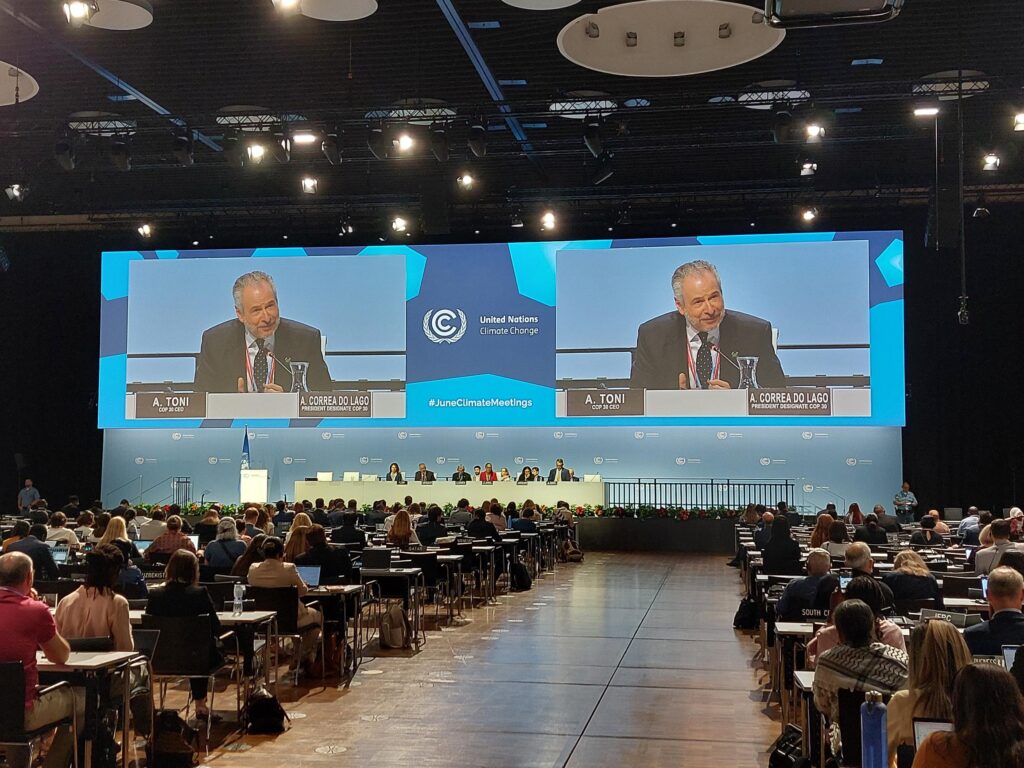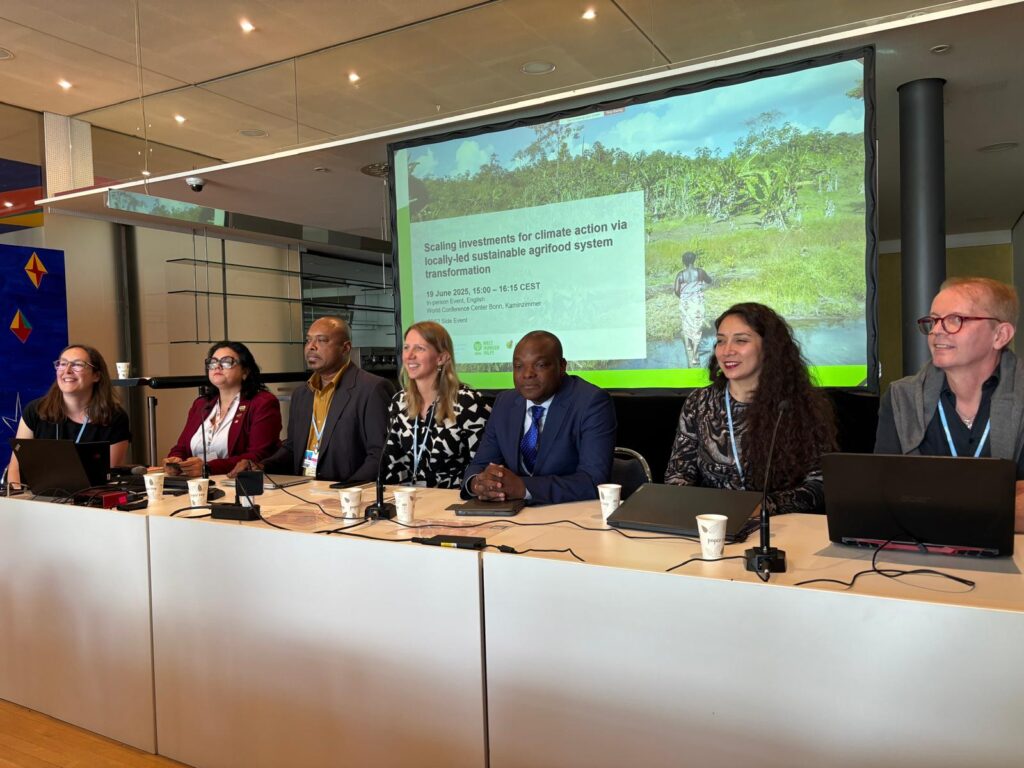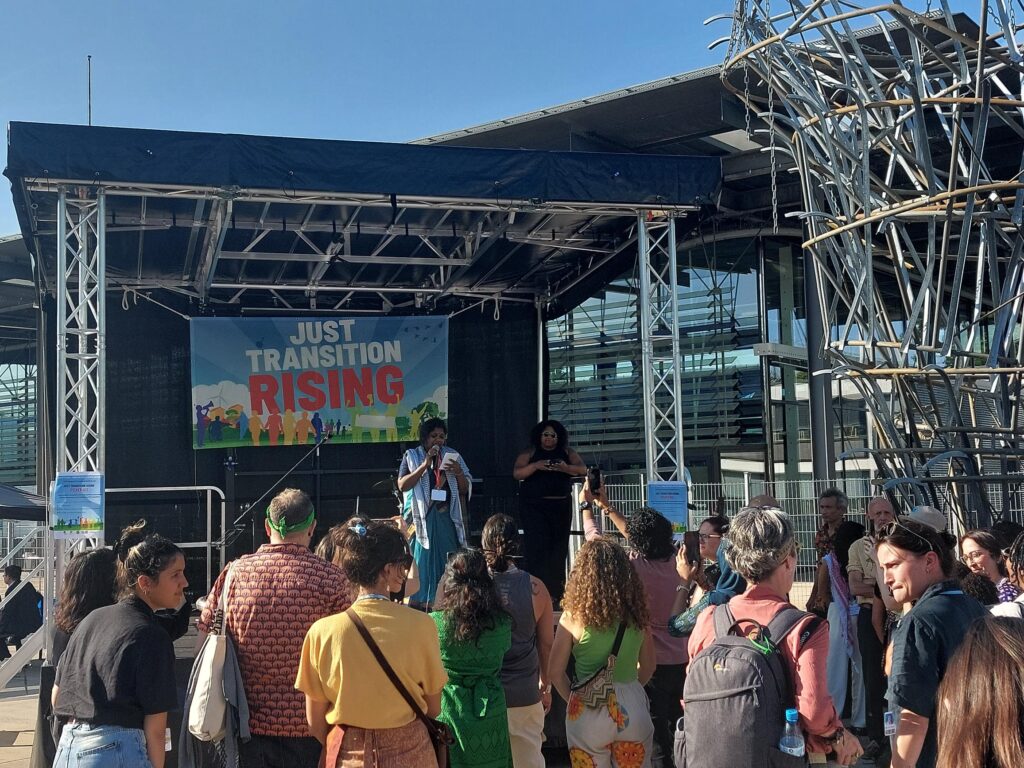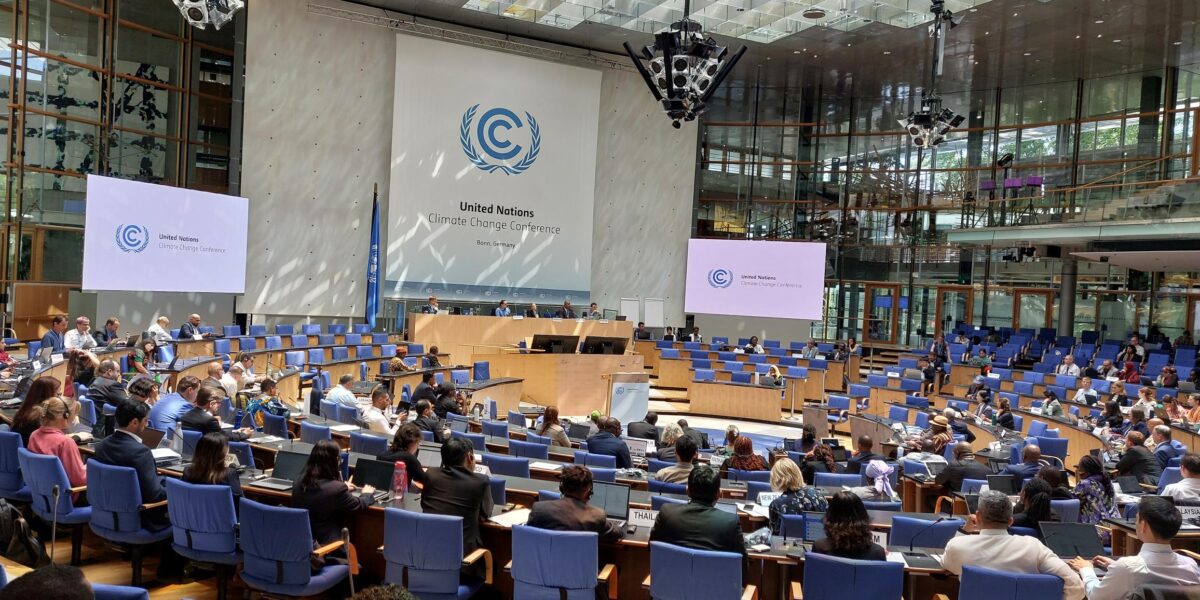From June 16 to 26, negotiators convened in Bonn for the UNFCCC SB 62 climate talks, a critical round of technical discussions designed to pave the way for COP30 in Belém, Brazil, this November. While progress was made in several areas, outcomes remain unresolved, highlighting once again the deep divisions between Parties and the pressing need for transformative solutions. Alliance2015 was present at the talks, represented by Concern Worldwide, Helvetas, Welthungerhilfe, and the Hub, to bring a joint advocacy perspective focused on the needs of the world’s most vulnerable communities.
Finance was a flashpoint throughout the negotiations. Following the underwhelming results of COP29 in Baku, where a new climate finance goal was agreed but left many climate-vulnerable countries disappointed, the SB 62 session opened with heated debates on the implementation of developed countries’ finance obligations. These disputes, especially around Article 9.1 of the Paris Agreement, set the tone for the entire conference.

While developed countries sought broader conversations around finance mobilisation, developing countries, led by the Like-Minded Developing Countries (LMDCs), pushed hard for a standalone work programme to address the tripling of adaptation finance and predictable, grant-based support. Discussions on the $1.3 trillion Baku to Belém Roadmap remained largely abstract, with little sign of meaningful measures to steer financial flows toward real solutions or alleviate debt burdens.
Despite tensions, there was some forward movement on the Global Goal on Adaptation (GGA). Negotiators reached a compromise on guidance for finalising a list of indicators to track adaptation progress. These indicators will be globally applicable, context-sensitive, and crucially include metrics for assessing access to and quality of adaptation finance – an important win for developing countries. However, much of the detail will need to be hammered out in Belém.
The nexus between climate, agriculture, and food security also received attention. A technical workshop under the Sharm-el-Sheikh Joint Work explored how food systems, often neglected in climate finance, can be made more sustainable and equitable. Civil society organisations, youth, and Indigenous groups advocated for agroecology as a powerful, nature-based solution that supports livelihoods, climate resilience, and biodiversity. However, persistent barriers remain in financing and scaling these approaches, and the influence of large agribusiness continues to skew policy toward industrial models that undermine sustainability and justice.

Similarly, just transition efforts aimed at ensuring fairness in the shift to a low-carbon economy saw important advocacy wins. Civil society mobilised both inside and outside the talks to push for a more inclusive and time-bound roadmap for fossil fuel phase-out, calling for mechanisms to ensure accountability and genuine participation of affected communities. These demands were officially acknowledged in the final conclusions, setting the stage for more concrete decisions at COP30.

Gender equality featured prominently with the development of a new Gender Action Plan. Discussions recognised the intersection of gender, climate justice, and sustainable development, and called for greater recognition of Indigenous women and women of African descent, the inclusion of men and boys in climate solutions, and decent work for women in emerging green and blue economies.
Overall, the mood in Bonn was one of cautious urgency. While the technical nature of the talks meant limited breakthroughs, the political weight of the decisions ahead loomed large. The UNFCCC Executive Secretary’s closing remarks underscored the stakes: “We need to go further, faster, and fairer.” With global climate goals hanging in the balance, the road to Belém must be paved not just with plans but with action that centers human rights, equity, and the voices of frontline communities.
As we look ahead to COP30, Alliance2015 and its partners call on governments to deliver on climate finance, finalise robust adaptation frameworks, transform food systems, and ensure that the transition to a greener world leaves no one behind. Belém, happening a decade after the adoption of the Paris Agreement, must be more than a milestone; it must be a turning point.
Read the full Alliance2015 Advocacy Perspectives here.


